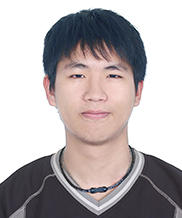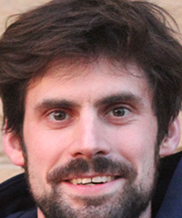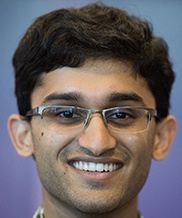Panel: Frontiers In Technologies
Jay Borenstein a Lecturer in Computer Science at Stanford University, Vincent Chang a SR. Engineer with ITRI, Nick Haber a Post Doc Scholar with the Wall Lab at Stanford University and Nitish Padmanaban a PhD Student with the Computational Imaging Lab at Stanford University discuss how the new technologies they are currently working on will shape the next set of stories.
 Jay Borenstein is a lecturer in the Computer Science Department at Stanford University with a focus on Virtual Reality, Software Engineering and Entrepreneurship. Jay founded Integration Appliance (www.intapp.com) in 2000 and served as the CEO through 2007. Jay also runs the “Education Modernization” (EdMod) group at Facebook. EdMod initiatives include Facebook inspirED, TechStart, VR Camp and Facebook Open Academy, which boasts participation from the top computer science universities around the world. Jay is also a Director at 6Seconds – The Emotional Intelligence Network and Kespry, a drone based aerial imaging company.
Jay Borenstein is a lecturer in the Computer Science Department at Stanford University with a focus on Virtual Reality, Software Engineering and Entrepreneurship. Jay founded Integration Appliance (www.intapp.com) in 2000 and served as the CEO through 2007. Jay also runs the “Education Modernization” (EdMod) group at Facebook. EdMod initiatives include Facebook inspirED, TechStart, VR Camp and Facebook Open Academy, which boasts participation from the top computer science universities around the world. Jay is also a Director at 6Seconds – The Emotional Intelligence Network and Kespry, a drone based aerial imaging company.
 Vincent Chang is currently a Project Manager Professional certified Senior Engineer with more than 5 years’ experience in the Department of Medical Informatics, at the Industrial and Technology Research Institute (ITRI) in Taiwan. He also has experienced leading the technical innovation team that designs and develops healthcare information systems and services targeting the elderly within the healthcare sector. Mr. Chang is dedicated to new innovations and techniques associated with the implementation of Digital Health Solutions to not only constantly improve efficiency and the quality of healthcare, but also create new value across healthcare enterprises.
Vincent Chang is currently a Project Manager Professional certified Senior Engineer with more than 5 years’ experience in the Department of Medical Informatics, at the Industrial and Technology Research Institute (ITRI) in Taiwan. He also has experienced leading the technical innovation team that designs and develops healthcare information systems and services targeting the elderly within the healthcare sector. Mr. Chang is dedicated to new innovations and techniques associated with the implementation of Digital Health Solutions to not only constantly improve efficiency and the quality of healthcare, but also create new value across healthcare enterprises.
 Nick Haber is a postdoctoral fellow in the School of Medicine and co-founder of the Autism Glass Project. His research interests lie in artificial intelligence and neuroscience and their applications to brain health. Within artificial intelligence and neuroscience, he is interested in creating algorithms that better reflect our learning processes and use data in novel, more efficient ways as compared to current machine learning approaches. Within brain health, he is interested in applying these artificial learning strategies and interactive machine learning paradigms to create mobile and wearable tools for diagnosis, monitoring, and therapy. He joined the Wall Lab at Stanford to work on Autism Glass in August 2014.
Nick Haber is a postdoctoral fellow in the School of Medicine and co-founder of the Autism Glass Project. His research interests lie in artificial intelligence and neuroscience and their applications to brain health. Within artificial intelligence and neuroscience, he is interested in creating algorithms that better reflect our learning processes and use data in novel, more efficient ways as compared to current machine learning approaches. Within brain health, he is interested in applying these artificial learning strategies and interactive machine learning paradigms to create mobile and wearable tools for diagnosis, monitoring, and therapy. He joined the Wall Lab at Stanford to work on Autism Glass in August 2014.
 Nitish Padmanabhan is a second year PhD student in the Stanford Computational Imaging lab. He did his undergraduate degree at UC Berkeley focusing on signal processing, and now works on opto-computational for VR. In particular, he has spent the last year working on building and evaluating displays to alleviate the vergence-accommodation conflict, and is now investigating the role of the vestibular system in causing simulator sickness in VR.
Nitish Padmanabhan is a second year PhD student in the Stanford Computational Imaging lab. He did his undergraduate degree at UC Berkeley focusing on signal processing, and now works on opto-computational for VR. In particular, he has spent the last year working on building and evaluating displays to alleviate the vergence-accommodation conflict, and is now investigating the role of the vestibular system in causing simulator sickness in VR.